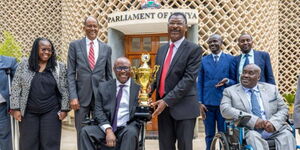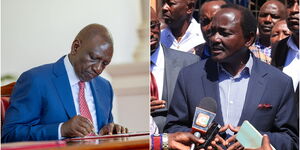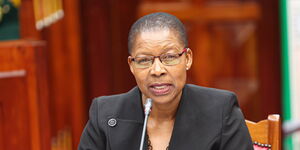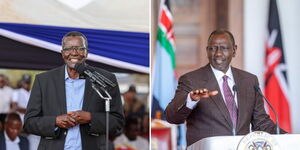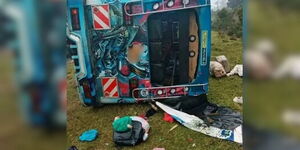The Director of Public Prosecution (DPP) and Directorate of Criminal Investigations (DCI) head claim that wealthy and influential suspects are in cahoots with the justice department.
DPP Noordin Haji and George Kinoti of DCI were speaking during the state of the anti-graft war seminar held at the Bomas of Kenya.
In his impassionate appeal, Kinoti vented his frustrations citing that despite gathering irrefutable evidence pointing at the looting of public funds, courts end up passing lenient sentences thus giving the accused an easy way back to public office.
He went on to state that the courts gave ‘strange orders’ when it came to powerful suspects implicated in various scandals.
Kinoti went on to explain how such orders effectively meant that their hands were tied as they were restricted from questioning or taking statements from the suspects.
“Some of the frustrations that pull us down are some strange orders we receive. We are stopped even before we record a statement from somebody whom we know very well has stolen from Kenyans, and all Kenyans know we have pursued this person,” he said during his address.
In his frank revelation, the DCI boss explained he had evidence of instances in which he received orders to halt pursuit of an influential graft suspect before he even had the chance to question the individual.
He painted a scenario in which he received implicit orders not to investigate an individual he referred to as ‘Mr. A’.
“When the orders came, I read them very well, ‘Do not use the door to go and arrest Mr. A.’ I sat down and consulted with my legal advisers, then I said there is a window, if I cannot use the door to arrest Mr. A , I can use the window.
"When we bring the smoking gun, we are told not to even dare touch that person.
"When you steal hospital and development money what do you think you are? You are no better than that terrorists,” he remarked.
The DPP echoed Kinoti’s sentiments complaining that the legal system is set up to favour thieves adding that he was just looking to level the playing ground.
“Why can’t everyone be treated the same, mwananchi na walioiba (ordinary Kenyans and those who stole)? Umeiba mabilioni alafu sisi serikali tunaambiwa tulipe sisi (You have stolen billions and then the Government is asked to pay for it because the Constitution says so).
"This constitution only serves those who steal,” he lamented.
Haji added he would head to the Supreme Court seeking to have all corruption suspects ordered to vacate their offices pending investigations.
Paul Kihara, the Attorney General, was also present at the conference and backed the statements made by his colleagues.
“A greater challenge that we now face and are experiencing are judgments of the courts that allow the return to office of persons charged with corruption,” he asserted.
The conference was set up by the Multisectoral Initiative Against Corruption (MIAC) and attracted 2500 representatives tasked with coming up with a 4-year-plan to tackle corruption.
The leaders went on to assure Kenyans that they would not despair in the war against corruption.




